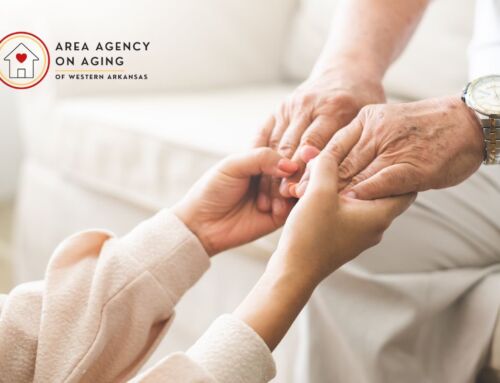Wondering what type of home care your loved one really needs? You're not alone. Families often feel overwhelmed when trying to match care options with actual needs. Area Agency on Aging of Western Arkansas is here to help make that process clearer. We’ll explain the various types of home care, from basic support with bathing to skilled nursing. You’ll learn what’s involved, who it helps, and how to choose wisely.
Key Takeaways:
- In-home care types: Non-medical care, Skilled nursing, and Therapy-based care (PT, OT, speech).
- Non-medical care includes help with bathing, dressing, meals, cleaning, and companionship.
- Skilled nursing includes wound care, injections, and monitoring vital signs; requires a doctor’s order.
- Therapy care helps regain movement, speech, and function after illness or surgery.
- Medicare covers short-term skilled care if prescribed; does not cover 24-hour or custodial care.
- Medicaid may cover both medical and non-medical in-home help; rules vary by state.
- Live-in vs 24-hour care: Live-in includes breaks; 24-hour involves rotating, awake staff.
- Specialized care supports dementia, chronic illness, palliative, and hospice needs.
- Respite care provides family caregivers with short-term relief.
- Home safety help includes mobility support, light housekeeping, and errands.
- Choose care providers based on licensing, evaluations, flexibility, and clear care plans.

Exploring the Types of Home Care: A Guide to Choosing the Right Support
When it comes to caring for a loved one at home, understanding the types of home care available can make all the difference. Whether you're looking for short-term medical support or long-term assistance with daily living, there are services designed to meet a wide range of needs. Choosing the right care can help individuals stay safe, comfortable, and independent in their own homes. This guide will walk you through the major categories of home care and how to determine which one fits best.
Many Types of Home Care Include Both Medical and Non-Medical Services
Home care is generally divided into two broad categories: medical care and non-medical support. Knowing which category fits your situation helps narrow down the best services.
Medical Home Care Involves Health-Related Support
Medical home care is provided by licensed professionals like nurses or therapists. For instance, this includes wound care, injections, monitoring vitals, administering medications, and feeding tube support. These services are often arranged either after a hospital stay or under a doctor’s orders. Furthermore, Medicare and many insurance plans may cover this kind of care.
Non-Medical Home Care Focuses on Daily Living
Non-medical home care, often called personal care, assists with bathing, grooming, dressing, light housekeeping, meal preparation, mobility support, and companionship. Ultimately, this type of care is essential for helping seniors or people with disabilities live independently.
Personal Care Services Promote Comfort and Daily Function
Personal care is a non-medical service that supports comfort and safety. It's suitable for those who need help with tasks but not medical treatment.
Personal Care Aides Provide Hands-On Support
These caregivers assist with bathing and hygiene. Additionally, they help with using the toilet, dressing and undressing, and walking and mobility. Moreover, they provide support with light cooking and cleaning, as well as medication reminders. Importantly, emotional companionship is also a key part of their role. This care can be either short-term or ongoing, depending on the needs of the individual. It helps reduce falls, prevent loneliness, and support aging in place. Learn more about personal care through Area Agency on Aging of Western Arkansas.
Skilled Nursing Care Is Delivered by Licensed Professionals
Skilled nursing care at home is ideal for individuals who have medical needs but prefer to stay at home.
Services Include:
Monitoring chronic conditions like diabetes or heart disease, in addition to administering medications or injections, is essential for maintaining health. Furthermore, post-surgical wound care, catheter and feeding tube management play a critical role in recovery. Moreover, checking blood pressure, oxygen levels, and vitals is crucial to ensure stability. This type of care, which is directed by a physician, is carried out by registered nurses. Typically, it’s part of a home health care plan provided under Medicare or Medicaid.
Therapy-Based Types of Home Care Help with Recovery and Function
Therapy services are another important type of home care. They support recovery after injury, illness, or surgery.
Types of Therapy Offered:
Physical Therapy builds strength and balance after surgery or falls. Occupational Therapy helps with tasks like eating, dressing, and using tools. Speech Therapy aids communication and swallowing, especially after strokes. Therapists visit the home and follow a treatment plan developed by a physician. These services are often short-term but can be extended based on progress.
Non-Medical Home Care Supports Independence and Connection
Non-medical care allows individuals to live at home with dignity and independence. It also relieves stress for family caregivers.
Services Typically Include:
Bathing and dressing assistance, meal prep and grocery help, light housekeeping, transportation to appointments, and friendly conversation and emotional support. These services are valuable not just for seniors, but also for people recovering from illness or surgery. They’re particularly helpful for those living alone. Explore available services through AAA of Western Arkansas.
Companionship and Meal Support Encourage Aging in Place
One often overlooked aspect of non-medical care is companionship. Indeed, it plays a key role in emotional and cognitive health.
Companionship Services Offer:
Social interaction, help with hobbies and conversation, emotional encouragement, and escorting to social activities or appointments. Combined with meal support, this can significantly improve quality of life. Seniors who eat well and feel connected are less likely to suffer from depression or physical decline.
Specialized Types of Home Care Are Available for Chronic or Terminal Conditions
Some individuals require specialized types of home care for long-term or end-of-life support.
Dementia and Alzheimer’s Care
When caring for individuals with dementia, the approach involves not only memory support but also the creation of a safe environment. Additionally, caregivers provide behavioral guidance and establish a daily structure. As the condition progresses, they may assist with tasks such as dressing, toileting, and using calming techniques. Consequently, as dementia advances, care becomes more intensive and increasingly focused on ensuring safety.
Palliative and Hospice Care
Palliative care focuses on comfort during serious illness, regardless of life expectancy. Hospice care supports comfort near the end of life, typically when the person has less than six months to live. Both services offer pain management, emotional support, and family guidance. Hospice also includes chaplains and counselors.
Long-Term and Chronic Care Requires Ongoing Adjustments
Chronic conditions like Parkinson’s disease, multiple sclerosis, or heart failure often need evolving care.
Services May Include:
Medication management, in addition to mobility assistance, is crucial for maintaining stability at home. Furthermore, monitoring symptoms and providing help with daily routines are essential components of care. Over time, as the condition progresses, care plans inevitably become more intensive. Ultimately, the goal is to reduce hospital visits and ensure consistent stability at home.
Family Caregivers Benefit from Respite Services
Caring for a loved one is rewarding—but exhausting. That’s where respite care steps in.
Respite Care Offers:
Temporary relief for caregivers, help during vacations or emergencies, and services at home or in care centers. This allows caregivers time to rest, attend events, or manage their own health. It also prevents burnout and supports long-term family well-being. For support options, check the Family Caregiver Alliance.
Around-the-Clock Care Keeps Loved Ones Safe
There are two common types of home care for continuous support: live-in care and 24-hour care.
Live-In Care
One aide stays throughout the day and night and may sleep during quiet hours. It's ideal for clients who sleep well and need supervision.
24-Hour Care
Caregivers work in rotating shifts without sleeping during shifts. It suits those with memory issues or high nighttime needs. Both options ensure help is always available, especially for high-risk or late-stage conditions.
Funding and Cost Depend on the Types of Home Care and Coverage
Understanding how to pay is just as important as choosing the right care.
Medicare Covers:
Short-term skilled nursing and therapy with a doctor’s order. Requirements include being homebound and needing skilled support. Learn more at the official Medicare site.
Medicaid May Cover:
Non-medical support like bathing and housekeeping, skilled nursing visits, and therapy. Coverage varies by state and income level. The application is through your state Medicaid office.
Private Pay and Insurance
Some long-term care insurance plans cover home care. Health Savings Accounts (HSAs) can also be used. Costs vary: personal care averages $20–$30/hr, skilled care $50+/hr. Be sure to ask agencies what’s covered before starting care.
Home Safety and Independence Are Part of Quality Care
Home care isn’t just about health—it also supports mobility, cleanliness, and safety.
Typical Homemaking and Safety Services:
Vacuuming and dusting, laundry and dishes, grocery shopping and meal prep, and clutter removal for fall prevention. These tasks keep the home livable and reduce health risks for older adults or people with disabilities.
Choosing a Home Care Provider Requires Careful Thought
To find the right provider, identify the type of care needed, check licenses and staff training, read reviews or request references, and ask how caregivers are matched and monitored.
What to Expect During the First Visit
A home safety review, an assessment of physical and mental needs, and creation of a personalized care plan. The plan should be clear, flexible, and updated as needs evolve. Use Medicare’s home care comparison tool to check local providers.
Take the Next Step Toward Personalized Home Care
Discover Support That Truly Cares
If you're exploring different types of home care, let the trusted team at Area Agency on Aging of Western Arkansas guide you. From personal care to nursing and therapy, we offer services that meet you where you are—right at home. Whether your loved one needs short-term help or ongoing support, we’re here to listen and help you plan. Contact us today to learn more or schedule a consultation.


